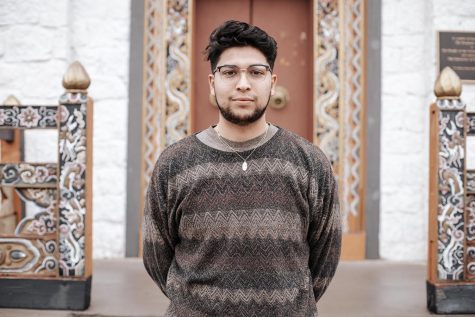It was April 16, 1913, when El Paso history would be changed forever. In an effort to acknowledge the important impact of mining and metallurgy on the ever-growing community, the State School of Mines and Metallurgy at El Paso was born. Metallurgy may not be as much of a household name in terms of its recognition as a field of study like business or nursing.
However, metallurgy was the fuel to kick off the creation of the school as we all know, The University of Texas at El Paso.
That said, what is metallurgy and why is it studied? In the simplest terms, metallurgy is the science and art of extracting metals from their ores and in turn using them for unique use in the world. Metals are mixed with other compounds like sand or limestone which create minerals. Then in a process like smelting or electrolysis, the metals become extracted from the minerals, otherwise known as ores. Metallurgy has had a huge impact not only to the United States, but the entire world.
Metallurgy is studied now to help provide aspiring students in the science and engineering world with knowledge which can be used in other fields or topics.
From the inception of the State School of Mines and Metallurgy, the only degree offered for the first few years was the engineering of mines. The beginning curriculum also being a mix of geology, mining and extractive metallurgy being the central topics first taught. Soon, the college joined the University of Texas, becoming the Bachelor of Sciences in mining engineering in 1919.
Miner engineering was then split into two options of metallurgy and mining in 1922, with a third option of geology added to the degree in 1923 and a short-lived petroleum geology option later dropped. As 1957 rolled around, the Bachelor of Sciences in mining engineering was put forward with the options of metallurgy, geology, and mining provided. Then in 1957, another big milestone occurred with the addition of a bachelor’s in metallurgical engineering being created as an expansion to its metallurgy option. Later in 1964, mining engineering option was discontinued, having just metallurgical engineering geology remaining. These departments still thrive today after all these years, continuing the landmark historical significance, the original School of Mines and Metallurgy first instilled. Since those early beginnings in metallurgical education back in the early 1900’s, UTEP still pushes the program with the support of a generous staff. Now in 2023, there is the department in metallurgical, materials, and biomedical engineering with the program of obtaining a bachelors in metallurgical and materials engineering.
Metallurgy has been able to provide future students with dependable careers in fields like oil, gas, scientific research and development, aerospace, biomedical and metal specialty and much more. Many graduates have been able to work doing quality assurance, production management, product development and more with companies that operate with metallurgy. For example, department chair Stella A. Quinones, helping distinguish the education of metallurgy in her many years of study and endorsement.If any field of study were to help start the legacy of UTEP, metallurgy is plenty up to the task.
H. Catching Marginot is a contributor and may be reached at [email protected]








